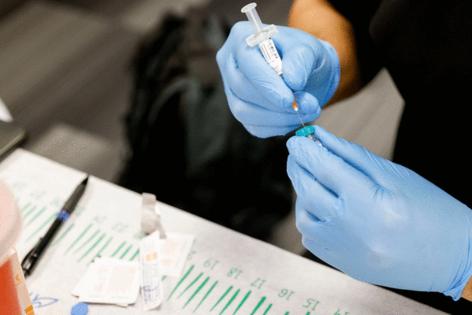Commentary: Vaccines are one of the most amazing achievements of humanity
Published in Op Eds
Vaccines are a vital tool that saves millions of lives annually. Concerningly, the U.S. government wants to cut funding for a key organization that saves lives worldwide through immunization. Amid vaccine safety debates, the world is witnessing a rise in measles cases.
The politics of the COVID pandemic saw a growing rejection of vaccines, and that shift has contributed to the Trump administration’s announcement to cut funding to Gavi, the Vaccine Alliance. Gavi is estimated to have saved the lives of 17 million children over the last 25 years. The loss of U.S. support would mean that 75 million children would miss their routine vaccinations in the next five years, and more than 1.2 million children could die as a result.
The vast number of children dying of infectious diseases today live in poorer countries. Still, we forget that less than two centuries ago, even rich countries lived in an era of pestilence. Then, infectious diseases caused almost half of annual American and British deaths, whereas today they cause only 3 percent of all deaths in America. Yet, infectious diseases still kill 3 million children in the world’s poorer regions.
We need to bring everyone together on uncontroversial, lifesaving childhood vaccines like those for mumps and measles. Not only do governments need to maintain current spending, but they need to increase it. Doing so offers an opportunity to drive significant advances in global development for a minimal investment — something that should be attractive to everyone, regardless of their political affiliation.
Vaccines are one of the most amazing achievements of humanity. They have saved more lives than any other medical invention, and provide population-level control of diseases that once caused untold misery. Vaccines have managed to erase one of humanity’s most deadly diseases, smallpox, after it killed indiscriminately for millennia. In the 20th century, it killed 300 million to 500 million people, before being finally eradicated in 1977 thanks to a vaccine. If that vaccine didn’t exist, this one disease might still kill 5 million people annually.
It is estimated that, globally, immunization efforts have saved 154 million lives in half a century, or six lives per minute of every year. The vast majority, 101 million, were infants.
Investing in vaccines, of course, prevents deaths from infectious diseases. By stopping diseases like polio, measles, and tetanus, we also reduce the pressure on healthcare systems in poorer countries, making it possible for them to better assist patients with heart and cancer conditions. Moreover, since infectious diseases know no borders, there is less strain on healthcare systems worldwide. This minimizes economic disruptions and fosters a more secure global environment.
Researchers for the Copenhagen Consensus have documented the costs and benefits of maintaining and increasing global investment in vaccinations in research published by Cambridge University Press.
If the world continues its current level of spending, we will save 3.8 million lives yearly from avoidable diseases between now and 2030. Each dollar will deliver an absolutely astounding $286 of social benefits, from saving lives and avoiding disease.
Moreover, the study also shows that increasing vaccination coverage, even if it is more expensive, remains a worthwhile investment. Over the next eight years, we could save an additional 4.1 million lives, or about half a million lives each year.
The costs would increase, as governments expand vaccination campaigns to harder-to-reach places and families. It may be necessary for more countries to copy the example of India, which uses food incentives to ensure greater coverage.
Yet, the additional total, direct global cost would still be a relatively modest $1.5 billion yearly, along with $200 million in extra time taken mostly by mothers who have to go to clinics. A half-million lives saved annually make this an incredible opportunity. Using standard economic evaluations across time and considering that avoided effects closer to now are more important to us, the benefit is worth $170 billion annually.
In economic terms, each dollar spent will generate $101 of social benefits to the world. Achieving a 100-to-1 value for money is a phenomenal return on any policy.
Saving the lives of 3.8 million children yearly with safe, basic vaccinations is an astounding achievement, and saving half a million children each year with even higher vaccination coverage is also an incredible opportunity. We should embrace both and ensure that all children are provided with lifelong protection against killer diseases.
_____
ABOUT THE WRITER
Bjorn Lomborg is the president of the Copenhagen Consensus, a visiting fellow at the Hoover Institution, and the author of “False Alarm” and “Best Things First.” He wrote this for InsideSources.com.
_____
©2025 Tribune Content Agency, LLC.
























































Comments